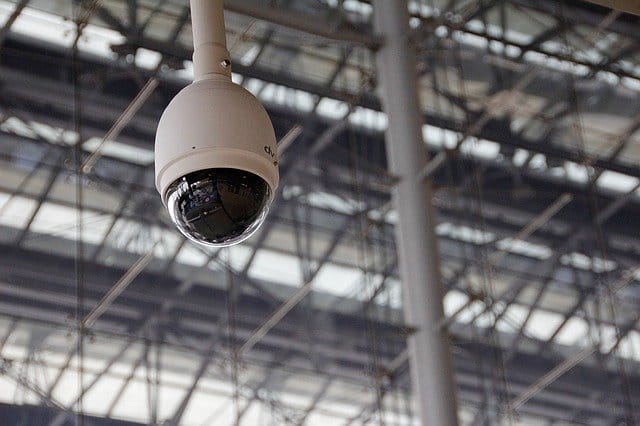
Categories

This is part of a series of articles by Wright Lindsey Jennings’ labor and employment team examining key trends for employers and the workplace in 2019. The series was featured in Arkansas Business.
With the advancement and implementation of technology into almost every aspect of our everyday lives, including our workday, surveillance in the workplace is at an all-time high. Employers are frequently conducting surveillance in the workplace to manage and increase productivity and efficiency, protect against employee misconduct and increase workplace safety. Some methods include email, computer and internet usage monitoring, and tracking employees by video, GPS and tracking devices.
Current Uses of Surveillance in the Workplace
Earlier this year, Amazon obtained a patent on a wristband that pinpoints the location of warehouse employees and tracks the employees’ hands in real time. The wristband is supposed to streamline the fulfillment of orders. The wristband uses ultrasonic tracking to identify the precise location of warehouse employees’ hands as they retrieve items for product orders. It then vibrates against the employee’s skin to point their hand in the right direction. UPS is utilizing sensors on its trucks to monitor vehicle performance, improve delivery methods and ensure safe vehicle operation. A UPS spokesman stated that UPS uses the sensors to help engage the service provider in further training and not for disciplinary action, according to an ABC News article. Walmart recently patented technology referred to as “sound sensors” that record how many items are scanned, how many bags are used, how long shoppers wait in line and how employees greet customers to help cut costs and improve the shopping experience, while monitoring if employees are performing their jobs efficiently and correctly. Employees from Three Square Market, a Wisconsin tech company, have had microchips implanted in their hands to allow employees to enter the workplace, log onto their computers and get snacks from the vending machine with the wave of a hand.
The Guardian published an article detailing a story of an employee at an IT services company who sent a private chat message to a friend at work worried about sharing his sexual identity with his manager in a meeting. The employee feared he would face career reprisal. The company’s wiretap detected the employee’s concern and alerted a senior company executive who then intervened, talked to the manager and defused the situation.
Employers are also monitoring employees’ activity involving sensitive and confidential information and company trade secrets to guard against theft and data breaches. Then there are the more recent trending topics including the #MeToo movement and violence in the workplace. Employers are monitoring employees’ communications and using video surveillance of certain work areas to try to stop harassing conduct, even without the need for anyone to report it.
Laws Possibly Implicated by Workplace Surveillance
Navigating the legal landscape of surveillance in the workplace can be very complicated, however, because it implicates a number of laws:
- Monitoring and recording telephone conversations, emails and internet usage outside of legitimate business purposes could lead to violations of the federal Wiretap Act, as amended by the Electronic Communications Privacy Act of 1986 (18 U.S.C. §§ 2510-22) or the Stored Communications Act (18 U.S.C. §§ 2701-12) or state wiretapping laws (Ark. Code Ann. § 5-60-120).
- In certain situations, employees have a reasonable expectation of privacy. Surveillance in the workplace can sometimes infringe upon that expectation and implicate state law privacy protections. Connecticut and Delaware have implemented laws requiring employers engaging in electronic monitoring by any means other than direct observation to give prior written notice to employees who may be affected. Arkansas recognizes the tort of invasion of privacy. Arkansas also has statutes in place to protect employees’ expectation of privacy such as its social media statute protecting the privacy of employees’ social media accounts (Ark. Code Ann. § 11-2-124). Nearby states like Texas and Tennessee have laws limiting an employer’s ability to use GPS tracking devices. Government employers also have the Fourth Amendment to think about.
- Collecting sensitive personal information from employees during surveillance also could lead to violations of federal data privacy and security laws like the Health Insurance Portability and Accountability Act (HIPAA), Gramm-Leach-Bliley Act (GLBA) and the Genetic Information Nondiscrimination Act (GINA), as well as state data privacy and security laws like Arkansas’s Personal Information Protection Act (Ark. Code Ann. §§ 4-110-101 et seq.).
- Employers have to treat all employees the same when conducting surveillance in order to not violate employment discrimination laws. Employers cannot retaliate against employees if they learn of complaints about discrimination or harassment through surveillance, or discriminate against an employee based on information discovered through surveillance. They may also have an obligation to investigate complaints that are discovered.
- Employers also have to be careful when conducting surveillance or determining whether to discipline an employee based on activity discovered during surveillance as it may be a violation of the National Labor Relations Act (NLRA).
And, this list is not exhaustive.
Implementing Surveillance in the Workplace
Implementing workplace surveillance is not an easy task. It is critical that employers approach the topic carefully and be transparent with employees when doing so. Have policies and procedures in place that discuss employees’ expectation of privacy in the workplace and have employees sign acknowledgment forms relating to any surveillance methods being used. Finally, make sure the surveillance is narrowly tailored for legitimate business purposes and not in violation of any federal or state laws.
Daveante Jones is a labor and employment attorney at Wright Lindsey Jennings in Little Rock who focuses on discrimination, employee leave, minimum wage and overtime, employment contracts and agency investigations. You can email him at dljones@wlj.com.











































































